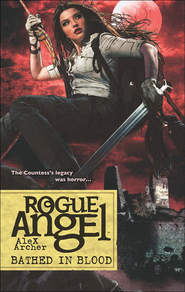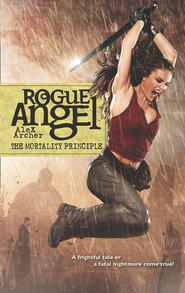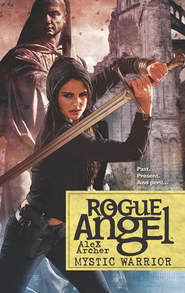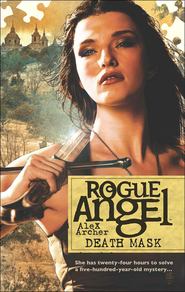По всем вопросам обращайтесь на: info@litportal.ru
(©) 2003-2025.
✖
Day Of Atonement
Автор
Год написания книги
2019
Настройки чтения
Размер шрифта
Высота строк
Поля
55 (#litres_trial_promo)
56 (#litres_trial_promo)
57 (#litres_trial_promo)
58 (#litres_trial_promo)
59 (#litres_trial_promo)
Copyright (#litres_trial_promo)
1 (#ulink_db9ec850-0566-5bd8-85f9-3cf718e79817)
On a winter’s nightTwenty years ago
“You have my attention,” Roux said.
The young man who sat across from him had been insistent, refusing to be put off no matter how many times Roux ducked the meeting. His excuses had become more and more elaborate, but that only made the young man try harder. That dogged persistence paid off. Eventually. The old man had been tempted to arrange the sit-down in a very public space, given the personality type that kind of persistence hinted at. There were some people he didn’t invite into his home, but Roux was tired. The search for the fragments of the blade wasn’t going well, with what he thought might be the final shard eluding him still, so just this once Muhammad could come to the mountain, or, in this case, chateau.
He regretted that decision now. Something about the intense young man’s scrutiny was decidedly uncomfortable. It wasn’t so much the stare as it was the slight twitch of his lower lip, like it was fighting back the urge to smile. It made his skin crawl. One thing the years had done for Roux was to offer an education in human nature. He liked to think himself a reasonable judge of character. This boy—because that’s what he was, really, a boy in man’s clothing—was somehow off.
So he waited, knowing the young man had something to get off his chest, and equally sure he didn’t want to hear it.
“I thought I might, eventually.”
“So how can I help you?”
“I suspect it’s more a case of how I can help you.” He settled a briefcase on the Louis XIV coffee table that acted as a barrier between them.
Roux winced as the young man pushed the case back an inch and thumbed the locks. It was all he could do not to reach out and slap the stupid boy. The table was a priceless work of art; the briefcase was not. “I wasn’t aware that I needed any help,” Roux said.
“Then allow me to enlighten you, Mr. Roux.” He drew a manila folder out of the briefcase. Roux had seen a million of these over the years. In his experience, they never contained good news when they were hand delivered like this. He sank back into his chair and feigned disinterest. The young man didn’t need to know his curiosity had been piqued.
Roux picked up the business card the young man had given him when he first turned up at his door. The name was the same as the one in Roux’s appointment diary. Patrice Moerlen, freelance journalist. After the seventh call he had done his due diligence and had some of his people run background checks on the man that would have made the CIA envious, and by the time he had finally agreed to the sit-down Roux knew everything there was to know about Patrice Moerlen, and had his own dossier almost twice as thick as the folder the journalist pulled from his briefcase.
“I saw this picture of you in a magazine,” he said, handing over the first clipping.
Roux had seen it before.
He had been disappointed that the photograph had been published, but it couldn’t be helped. The photograph had been taken at a charity event organized by an old friend, and obligations to the social compact necessitated he attend, because that’s what friends did. He’d been promised it was going to be a low-key gathering, but the late addition of one of those Hollywood darlings with too-blond hair and an impossibly plastic smile and her politico beau had transformed it into an irresistible honeypot for the paparazzi.
“Not the most flattering, I’ll grant you, but hardly a crime against humanity,” Roux said. “I rarely accept invitations to events like that, but you know how it is. Sometimes it’s hard to say no.”
“I understand,” the young man said, smiling. “The thing is, seeing it, I couldn’t help but think your face looked familiar.”
“I have one of those faces,” Roux said, not liking where this was going. “Isn’t that what they say? It’s embarrassing sometimes because everyone thinks they’ve seen me before, or that I remind them of someone else.”
“Which is what I thought at first. In my line of work I see a lot of faces. So I decided to check, just to be sure.”
“So.” Roux offered a slight smile. “Who did you think I reminded you of?”
“No one in particular, not some celebrity at least. But I had this nagging feeling that I’d seen you in another picture.”
He picked the next piece of paper from the folder and handed it over.
Roux remembered the picture being taken, even if he had forgotten the joke that had put a smile on everyone’s lips a long time ago.
The young man picked out the faces one by one.
“Bobby Kennedy, JFK and someone beside them, a third man, who you must admit bears a striking resemblance to you.”
“There’s certainly a resemblance,” Roux said. “But I hate to disappoint you. I never had the privilege of meeting either of the Kennedys.”
He looked the journalist straight in the eye and lied, daring him to call him on it.
“That’s a shame. But maybe this one is a little more familiar?”
Another picture.
This one was slightly out of focus, but Roux remembered the night well.
He’d forgotten a lot of the others in the photograph, but knew the man on the right—Paul Reynaud, the president of France. It had been taken a few months before the outbreak of World War II. Roux stood behind Reynaud’s shoulder. He had been less cautious then, less concerned about being seen in public because the proliferation of cameras was nothing like it was today, and the chances of being caught and remembered from one image to the next were almost nil.
Only now Roux had been remembered, and the journalist had followed a trail of photographs into his past and found him impossibly unchanged despite the seventy years between the first and last picture.
“It could be the same man.” Roux offered a noncommittal shrug. He needed something to throw the young journalist off the trail, a conclusive spanner in the works that would destroy his faith that it was Roux in the photograph.
“I’m absolutely sure it is, Mr. Roux. It’s you, after all.” He produced another picture, a sepia-tinged photograph of the Russian royal family. Roux was there again. “Do I really need to show you more? I have them. Plenty of them. Enough, I’m sure, to convince you.”
“I’m not sure what you’re trying to say,” Roux told him. “You can’t possibly think these are all of me? They date back nearly a hundred years. That’s impossible.”
“And yet that’s you in each of those pictures, unable to resist the allure of power, rubbing shoulders with the rich and famous. As you say, there’s more than a hundred years between some of these photographs and yet there you are in all of them. And, most interestingly, you haven’t changed a bit. I would ask you what the secret of your young skin is, but I’m assuming it’s not some moisturizer.” His smile was more of a wince.
“A good story, but for one fatal flaw. That’s not me in those pictures, no matter how similar the men are. With the billions of people in the world, it’s hardly surprising that some of us wear recycled faces, is it? How could it be me?”
“You’re denying it?” the journalist asked, gathering the pictures.
“I’m simply pointing out that you are mistaken.”
“And that’s your final word?”
Roux rubbed a hand over his face, a gesture that could easily have been interpreted as having something to hide rather than simple exhaustion. “I really don’t think there’s anything else to say.” He pushed himself to his feet, indicating their meeting was over. He wasn’t about to sit and debate the impossibility of longevity, never mind immortality, with the young man when the only thing he risked was betraying himself with some careless word that would only strengthen his case.
“Then you’ll have no objection to me running the story, then?”
“What story?” That brought him up sharply. He’d reacted just a little too quickly to the threat. An innocent man wouldn’t have barked out those two words quite as fiercely. He forced himself to sound amused. “There is no story.”
“Perhaps, perhaps not. We’ll let the members of the public make up their own minds, shall we? Isn’t that the joy of a free press?”











